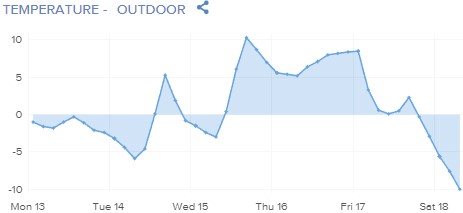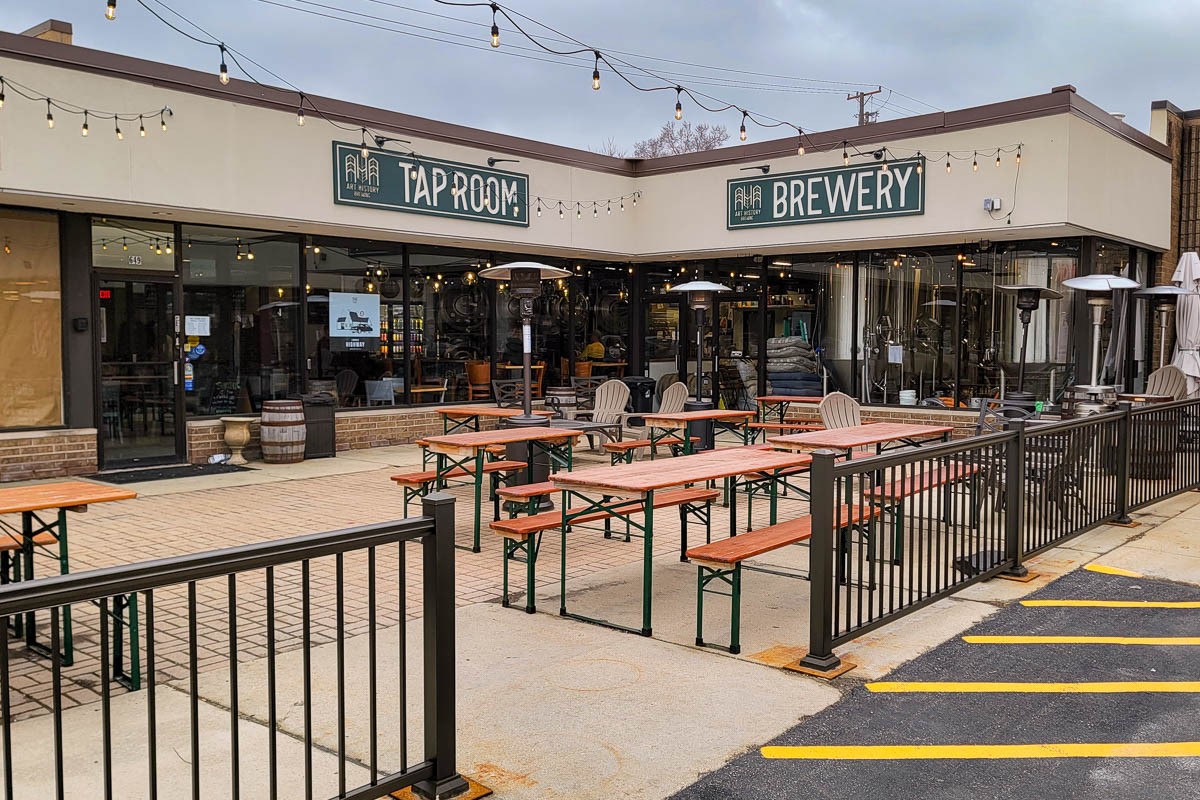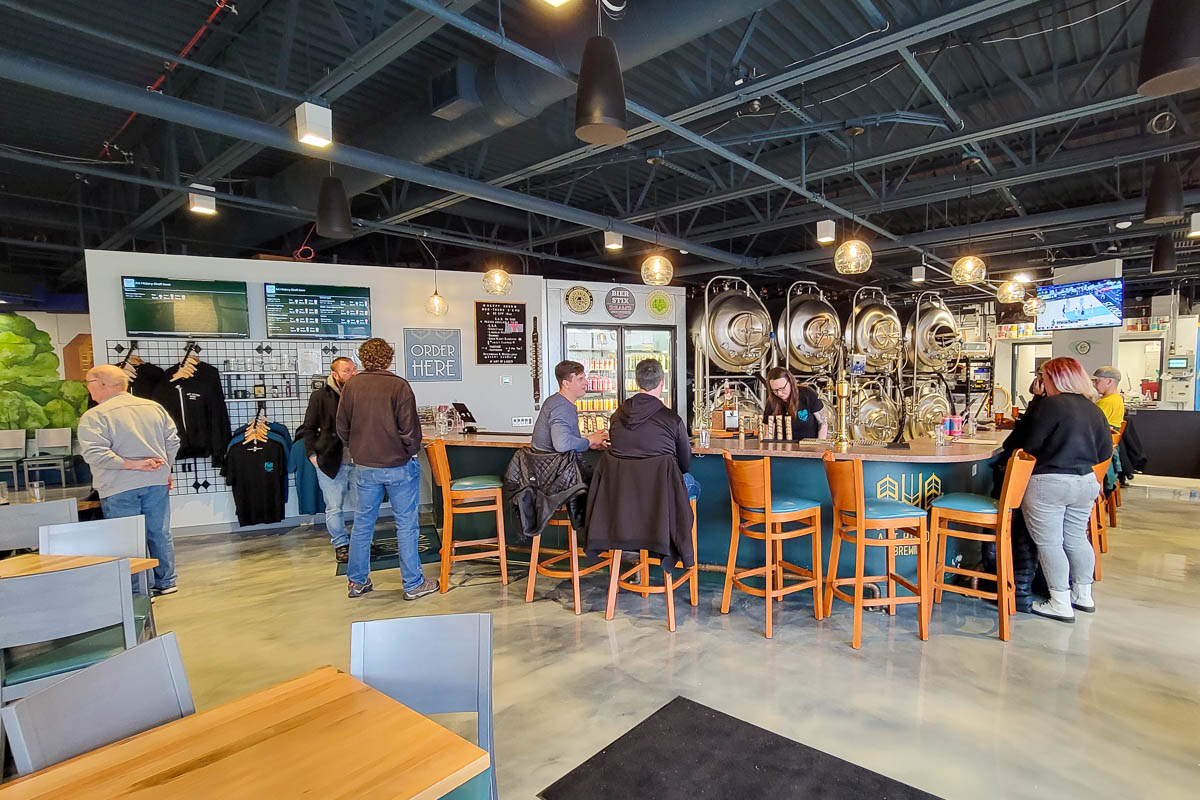I've had a bunch of tasks and a mid-afternoon meeting, so I didn't get a chance to read all of these yet:
Finally, close to me, after the lovely Grafton Pub closed last August, the Old Town School of Folk Music stepped in to buy the space. But that plan has hit a snag after a higher bidder emerged.
Today is the 25th anniversary of the US Food and Drug Administration signing off on Pfizer's miracle drug, Sildenafil. The drug helped raise Pfizer's profits and keep them up for years, until competitors like tadalafil and vardenafil popped up and made significant market penetration.
And on the 5th of next month, WGN-TV in Chicago will turn 75. The eponymous World's Greatest Newspaper that owned WGN radio and TV for most of their lives, the Chicago Tribune, reminds us that WGN's biggest star for decades was a clown.
At my day job, I go into our downtown office at least once a week, which turns out to be about once a week longer than almost everyone else. I like the change of scene, and Cassie gets to spend those days at day camp, so it's a win for everyone.
The 90%-or-so remote work that people have elected also means we have tons of empty offices while our multi-year leases run their courses. So, after waiting almost a year for the furniture upgrade that never came, the office manager today said "just go take the office next door to yours." Cool. Better furniture, a (very slightly) different view, and...that's about it.
While I move my stuff 4 meters to the west, you can read these:
Finally, in keeping with me schlepping my books and laptop next door, Salesforce and Meta have put 22,000 m² of downtown Chicago office space on the secondary market, terrifying commercial real estate owners everywhere.
After having the 4th-mildest winter in 70 years, the weather hasn't really changed. Abnormally-warm February temperatures have hung around to become abnormally-cool March temperatures. I'm ready for real spring, thank you.
Meanwhile...
- ProPublica reports on the bafflement inside the New York City Council about how to stop paying multi-million-dollar settlements when the NYPD violates people's civil rights—a problem we have in Chicago, for identical reasons—but haven't figured out that police oversight might help. (One Daily Parker reader suggested taking the money out of the police pension fund.)
- A bill moving through Florida's legislature would address suburban sprawl by redefining it. (Want to bet a real-estate developer lobbied for this one?)
- A ransomware attack a few weeks ago has affected up to 130 organizations, according to researchers and online boasts from the attackers.
- United Airlines wants to start air-taxi service between the Loop and O'Hare by 2025, using electric vertical take-off and landing (eVTOL) airplanes.
Finally, I laughed out loud at the YouGov survey that found 46% of American men who have never flown an airplane think they could land an air transport with only some help from Air Traffic Control. I laughed because I do know how to fly a plane, and I don't think I could land a 787 well enough to use the plane again under any circumstances without a few dozen simulator hours. In fact, I would probably spend several crucial minutes trying to figure out how to change the radio to 121.5 and the transponder to 7700. But hey, the United States put Dunning and Kruger on the map, so this seems about right to me.
The Apollo Chorus annual fundraiser/cabaret is on April 1st, and tickets are still available. If you can't make it, you can still donate.
Meanwhile, in the rest of the world:
And finally, screenings of Winnie the Pooh: Blood and Honey, the new slasher pic featuring Winnie and Piglet as serial killers, will not be shown in Hong Kong and Macau, because Chinese dictator Xi Jinping thinks it's a jab at him. Seriously.
Welcome to March in Chicago, where the temperature drops 20°C in 31 hours:

This morning's -10.7°C was the coldest temperature in Chicago since the night of February 3rd-4th. What a strange winter.
Check back on Wednesday when it's back above 10°C.
We had four completely-overcast days in a row, including one with some blowing snow, so I'm happy today has been completely clear. Tomorrow might even get above 10°C—which would at least get into normal March temperatures. This whole winter has been weird, as the next few will likely be until temperature increases start leveling out.
In other news:
Finally, Bruce Schneier and Nathan Sanders explain how AI could write our laws in the future.
The New York Times today has an interactive feature explaining how converting pre-war offices to apartments is a lot easier than converting modern office buildings. Simply put, before the 1940s, no one had air conditioning, so the buildings had more light and air:
These kinds of buildings, often dating to the early 20th century, make for simpler conversions because the same logic that shaped how they were designed as offices a century ago determines how apartments are planned today. Both share a rule of thumb that no interior space be more than 8 or 9 meters from a window that opens.
Iconic prewar skyscrapers like the Empire State Building were designed to this standard, and with this smallest unit in mind: a single rentable office 3 to 6 meters wide and about 8 meters from the windows to the common corridor. That was just the right amount of space for a receptionist’s anteroom and a windowed office.
Dan Kaplan, a senior partner with the architecture firm FXCollaborative in New York, identifies the private-eye suite in any film noir as a classic example: frosted glass doors, a secretary framed by interior transom windows, and then the detective in his private office flooded with natural light.
But the conversion puzzle gets more complex with offices built after World War II. That’s because the modern office has strayed far — increasingly far — from the window rule.
Two inventions liberated office space from the window: air-conditioning and the fluorescent light bulb. Just as the elevator and steel-cage construction enabled buildings to grow taller in the late 19th century, the architectural historian Carol Willis has written, fluorescent lighting and air-conditioning enabled their floor plates to become much deeper.
Then local rules add still more complexity: Maybe the building has to meet stricter seismic requirements as an apartment than as an office (much of the West Coast), or the whole facade must be replaced to meet current wind-load standards (hurricane-prone places). Or you can only convert 18 of the 32 existing office floors into residential use (in Manhattan, such use caps depend on a building’s age and location). Or units must average at least 500 square feet in size per building (downtown Chicago). Or every legal bedroom must have its own working window (New York requires this but Philadelphia and San Francisco don’t).
Still, the commercial real-estate collapse of the last three years has made conversions imperative in big-city downtowns like the Chicago Loop.
The result, probably in only a few years, will be to transform former dense commercial districts like the Loop into dense mixed-use districts that people want to live in.
Chicago mayoral candidate Brandon Johnson got a big nod this week:
Elizabeth Warren, a Massachusetts senator and former presidential candidate, is backing Brandon Johnson in the Chicago mayor’s race.
“Commissioner Brandon Johnson and I are both former public school teachers, and I can tell you that he understands what it takes to build a stronger Chicago for everyone. From education to public safety to housing, Brandon has a bold, forward-looking, progressive plan to move Chicago forward, and he has the experience to make those plans real,” Warren said in a statement.
I didn't catch Wednesday's debate, but given how close the race is, I expect they'll have more.
Welcome to stop #82 on the Brews and Choos project.
Brewery: Art History Brewing, 649 W. State St., Geneva
Train line: Union Pacific West, Geneva
Time from Chicago: 72 minutes (Zone H)
Distance from station: 1.0 km

Art History Brewing opened in the summer of 2020, a few months after their planned March 15th opening (oops). They got through the pandemic in part by brewing for Hopleaf, the excellent Belgian-inspired restaurant less than a kilometer from my house. But for whatever reason, none of their beers exactly knocked my socks off. Plus, I really didn't like the brewery's location in a strip mall along the stroad that cuts through one of the cutest small cities in Illinois.

I wound up trying five beers, because I actually couldn't finish one of the ones you see above. The Gravitace Pils (5.1%, 38 IBU) was pretty good: not too malty, good hop balance, clean and refreshing, something I would order again. I also liked the ESB (5.3%), which tasted like it came straight from London. But the Isla New England IPA (7.2%, 18 IBU) just didn't work for me. It was way too sweet, with a bizarre banana note thanks to the isoamyl acetate left over from the brewing process. The Ceres American Pale (7.3%, 65 IBU) was like whiplash after the Isla, with huge hops and a bitter finish that I liked, but wouldn't make it my go-to. I tried one more, the Lincoln Highway IPA (5.8%, 40 IBU), that had a good vanilla-malt flavor over a strong hoppy foundation.

I think Geneva is worth the trip, especially the historic district just north of the train station. And I guess I'd go back to Art History, but I probably wouldn't make it past Stockholm's on my way there.
Beer garden? Yes
Dogs OK? Outside only
Televisions? Yes, unavoidable
Serves food? Pretzels, but BYOF allowed
Would hang out with a book? Yes
Would hang out with friends? Yes
Would go back? Maybe